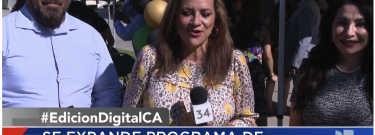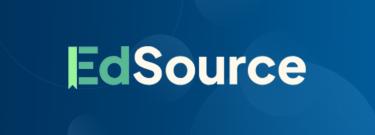Not just rent: How LA college students are using $1,000 of monthly guaranteed income
Not just rent: How LA college students are using $1,000 of monthly guaranteed income
When Adriana Orea first got an email about the Los Angeles Community College District’s new guaranteed basic income program, she ignored it.
Participants would receive $1,000 a month for one year, and they could spend that money however they pleased, the email said. To Orea, that sounded too good to be true.
“I thought it was a scam,” she told LAist.
The district reached out again, this time to Orea’s personal email. She did some digging to ensure the email was legitimate. And then she applied. Orea became one of 251 students selected for the program, known as BOOST, short for Building Outstanding Opportunities for Students to Thrive.
What community colleges want to happen
BOOST was made open to students pursuing health careers at four of the district’s campuses: East L.A. College, L.A. City College, L.A. Southwest College, and L.A. Trade-Technical College.
The program aims to help meet employer demands for healthcare professionals, while bridging the gap between students’ expenses and the region’s cost of living. Students received the first installment around Thanksgiving.
“We really pushed hard for the first payments to reach students in November,” said Kelly King, executive director of the Foundation for the Los Angeles Community Colleges. Her organization started the BOOST program, which is funded by private foundations.
The timing was deliberate, King added, “right at the end of their fall semester” — and at the start of the holiday season. Her hope is that the payments will “get [students] through finals and into a fresh start to the new year.”
When the budget gets overwhelming
Orea, a student at L.A. City College, is working toward becoming a registered nurse. She also has a 2-year-old son.
“It can be a little bit overwhelming,” she said. “You really have to budget very, very, very, very, very, very, very well.”
Orea has been in the healthcare industry for about seven years, starting as a certified nurse assistant. These healthcare professionals provide a wide range of care — everything from helping patients eat to monitoring their vital signs.
Through a program at L.A. Unified School District’s adult school, Orea became a licensed vocational nurse, a more administrative position. In Los Angeles, these nurses earn $58,150 to $85,002 a year. Orea says that's a good salary — "if you're single.”
“It's not the best if you have a kid,” she added, “especially if you want to give him a better life.”
Orea is now completing the prerequisites to apply for a registered nurse program. Because those programs can be competitive, she’s mentally prepared to apply everywhere, including community colleges and (less enthusiastically) for-profit schools. She wants to avoid getting in debt.
When Orea talks about becoming a registered nurse, she does so with conviction. “It’s not a choice,” she told LAist. “I have to make this happen.”
What a little extra can do
After her son was born, Orea moved back in with her parents to stay afloat. Her family watches her 2-year-old while she goes to school full-time. On top of her personal and academic duties, Orea has a part-time work-study job on campus. Money’s tight, she told LAist. “Currently, I'm living paycheck to paycheck.”
Orea received the first BOOST installment on Thanksgiving. With it, she plans to pay off an outstanding medical bill. Plus, one of her molars hurts, and her dentist said she needs a crown — but that costs $500. For Orea, “that’s a lot of money, all at once.”
The BOOST payment will enable her to “take care of it, before I get to the point where it's just unnerving pain,” she said.
Those are not educational expenses, King said, but they are keeping with the intent of the program.
“If you're dealing with tooth pain, it's really hard to study for finals and really hard to focus on other activities. Or if you're worried about [an outstanding] payment, those things hang over you,” she added. “One of the beliefs of this type of program is that people, when given resources, typically make very good decisions."
What others take for granted
Brenda Olazava is a second-year student at L.A. City College who's also in the BOOST program. She received her first payment the day before Thanksgiving and used most of it to help pay for this month’s rent. She also bought an outfit for her son, as well as shoes for herself and her children.
“That speaks to the [participant’s] dignity,” said Stacia West, co-founding director of the Center for Guaranteed Income Research at the University of Pennsylvania and associate professor at the University of Tennessee.
Her center has studied the behavior and outcomes of thousands of people who’ve participated in over 35 guaranteed income programs across the country. The research includes control groups of people with similar characteristics who did not receive the payments.
“So many people in our studies will talk about these everyday things that so many middle- and upper-income people take for granted,” West said.
“The trend that we see in the first three to six months is that folks use that money to shore up their material safety,” she added. “We're talking about things like, if you're behind on rent, catching up on rent. If you're behind on the light bill, catching up on the light bill, making sure that there is enough food in the house.”
Orea estimates that there will be some money left over after she takes care of her dental and medical bills. She plans to take her son to a local mountain range, so he can see and touch snow for the first time.
Planning for the future
With regard to upcoming BOOST payments, Orea wants to save as much as possible. Nursing programs are very demanding, she noted, with heavy coursework and clinical rotations, so managing a job on top of all that can be difficult.
“Just planning ahead, it'll be really good to have that extra money, so that if I do have to cut back on work, I’ll have that cushion,” she said.
Plus, even though her family is currently able to watch her son, she may have to pay for child care in the future.
Orea is used to working hard to save up. Before her son was born, for instance, she worked overtime during the first five months of her pregnancy. But, moving forward, she’d like to cultivate a new relationship with money, one that’s less grueling.
Recently, Orea signed up for free financial literacy workshops at her campus. She learned about the importance of saving up for retirement; about stocks and bonds; and about what type of investments to avoid. High-yield savings accounts especially piqued her interest.
“I’m going to try to make the most out of my money,” she said.
What can be learned?
According to West, there are about 150 guaranteed income programs across the country. Her center’s been hired to study the BOOST program.
“This is only the second [program] with community college students, so we're really excited to see what happens,” she said.
“We're already thinking about when these payments end in October 2025,” King, the foundation director, added. Program leaders want to find existing resources that may help students with some of the costs they took care of with the $1,000 payments.
King also wonders whether students in the program will feel like they have more time and what they will do with it. Will they take an extra class? Seek professional internships? All these decisions will help them reach their goals.


